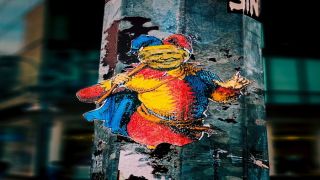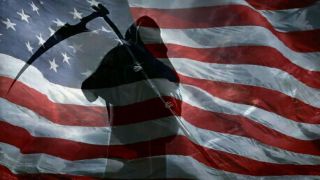What happened on December 6, 1984, on the way to the state farm Unango? Featured
- Written by
- font size decrease font size increase font size
 Africa, kasaan media, 2020
Africa, kasaan media, 2020
Lourenço Marques (Maputo)/ Cape Town )
1979 Treacherous brother kiss between Samora Machel and Erich Honecker
It is the year 1984.
The prehistory to the attack on the GDR development helpers of the socialist state farm Unango was long and owed to the crisis in southern Africa since the independence of numerous states from colonial rule in the 1960s and 1970s, which also resulted from the block thinking of the African states and the Cold War.
Ultimately, this lack of transparency by the new masters in African governments led to the devastating terrorist attack at Unango. The endless civil war, Apartheid and the slow collapse of the Comecon economic system also created a situation in which the attack on the GDR development workers was never resolved.
Maybe the involved countries didn't want to solve the crime either.
Such a starting point was the calculation of the former Minister for State Security, Erich Mielke, in Berlin.
An admission of the socialist state, which was in chaos, into the then economic union of the Eastern Bloc Comecon was rejected by its members, Mozambique turned away from its alleged brother states already in the mid-1980s.

From Federal Archives, Picture 183-R0522-177 / CC-BY-SA 3.0, CC BY-SA 3.0 de, Link
A very bad guy: Erich Mielke, Minister for State Security in East Berlin
Even at that time, secret negotiations were underway with South Africa, which was interested in removing Mozambique from the list of front states against the Apartheid State of Pretoria. Thus, as early as March 1984, a real politic treaty was signed between Mozambique and South Africa at Nkomati Bridge.
From Federal Archives, Picture 183-1983-0303-423 / CC-BY-SA 3.0, CC BY-SA 3.0 de, Link

Samora Moises Machel with friends when they were still friends Margot Honecker, then wife of the dictator Erich Honecker
Mielke could not like that: The corrupt Samora Machel moved behind the front line and cashed in on both sides. Thus, Mielke conducted foreign policy with his Stasi apparatus. And yes, actually Honecker was no longer the first man in the state, but Erich Mielke.
Terror simply swept under the table
It sounds like a grotesque reference to the international community.
One of the most serious terrorist attacks against Germans remained completely without consequences for the perpetrators, who were not to be found in Mozambique but in the former GDR, due to the Cold War and the fall of the Berlin Wall.
The once so good relationship between the respective leaders of their states Erich Honecker and Samora Machel had been clouded for months.
Since 1979, many ships had left the legendary Delagoa Bay. Mielke wanted to sell weapons through the KoKo and no longer import coffee from Mozambique. He preferred to take it from West-Germany.
Mozambique, on the other hand, was once again approaching South Africa after years of the bush war. A consensus was needed and the socialist leadership in Maputo sought a balance with Pretoria. Mielke could not like that.
Eight Germans were murdered just like that.
But who murdered Wolfgang Smardz, Uwe Wriedt, Günter Skibbe, Manfred Lindner, Klaus Einecke, Helmut Liepe, Hans-Dieter Wagner, Jürgen Michel, the Yugoslavian development aid worker Branko Vujovic and who injured Klaus Pohl so badly in the long stretched curve in the bushland?
It was December 6, 1984, on a dusty African dirt road leading to the fields of the state farm. About 45 men, partly armed with bazookas and MPs, sneaked to the track under the protection of the surrounding bushes.
Another 10 kilometres to Unango, the convoy came to a standstill. Shortly afterwards, the assailants approached the Multicar from behind and executed the victims with targeted shots to the head. Three are found in front of the truck, four in the truck. One of the development workers was seriously injured, he died shortly afterwards. The Yugoslavian is also dead. One of the development helpers survives, but even he could not contribute much to the enlightenment.
The perpetrators escaped unrecognised within minutes, the guard fled to the other side of the slope, Mielke in East Berlin raged.
Whilst the decades passed by this history was completely forgotten, the attack faded out.
After the reunification of Germany, the case was again taken up by the public prosecutor's office in Gera and finally handed over to the visibly uninterested authority in Maputo in 2009.
Smokescreens in the bush
The "truth" rewritten by the Ministry for State Security and the alleged mastermind of the attack, Erich Mielke, was used to describe gangs that at that time were caught between the lines of the Mozambique civil war, who were identified as the perpetrators. None of the alleged gang members could ever be located. There were arms dealers, mercenaries and desperados who sought their fortune between the lines.
The incompetent regime of Samora Machel was a great help to them, endless strikes kept the socialist version of Mozambique in suspense. Nothing worked anymore. Also, several hundred trucks from the GDR, which had already been delivered and were intended for the deal between the GDR and Mozambique, rusted in the ports.
The reflection within the socialist brother states of the Cold War was one of the greatest disasters.
To cultivate agricultural land outside of the GDR to harvest tropical fruits and coffee and to provide development aid to the Mozambicans, who were plagued by civil war, through about 100 reconstruction workers was within the framework of the possibilities of the former GDR.
This socialist fraternal support for the FRELIMO regime by the then ruler Samora Machel ended in death for one Yugoslavian and eight German reconstruction workers.
Simple, they were murdered.
While the GDR still existed, no reconnaissance activities were developed.
Samora Machel hamba khale (Walk safely)
Mozambique also got into considerable, further difficulties after the death of the "revolutionary leader" Samora Machel.
The already curious crash of the Tupolev Tu-134A-3 over Lebombobergen, South Africa, near Komatipoort, in October 1986, exposed even the international investigation commission to countless puzzles arising from the facts of the crash.
Margo Commission
During his lifetime Machel had maintained a corrupt and perfidious regime that turned to either side if it only served to maintain the diminish power. The RENAMO supported by South Africa was no better.
Machel's death left a political vacuum in that it was also very difficult for the South African judge Cecil Margo to determine what had happened when the crash occurred. In this environment, the clarification of the death of the GDR citizens was quickly forgotten.
The state GDR, a militarily active band of robbers
As early as July 1984 there were rumours that the GDR had entered into a political and military engagement in Angola to obtain important foreign exchange through the international diamond trade. Mielke also sensed a profitable arms business in Mozambique, even if the desired development boost did not come from Mozambique, as the GDR leadership expressed itself after the attack. Mielke spoke of "capitulatory behaviour of the Mozambican forces"
2.Part Traces to the Oranje Vrystaat

on
https://af.wikipedia.org/wiki/L%C3%AAer:PW_Botha_1962.jpg, public domain, link
Related items
- Desmond Tutu has passed away
- The most mysterious murder case in Europe - The way of the Isdal woman - Waldfischbach- Burgalben - Bitche (1)
- 30 years later - is German unity a model for success?
- Further search for the identity of the Isdal woman (II) - Jugoslavijo, dobar dan
- JUMPING OVER THE RAINBOW by Ronnie Van der Merwe














